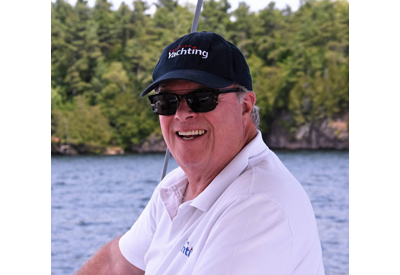Charting a change in the weather

July 29, 2021
I wanted to share a story that I read about in a newsletter from the UK because it raised a few important points about the weather that I had not considered. Last week in this column we reminded readers about the “Weather to Boat” app in the wake of the Tornado that hit Barrie, Ontario the week before.
The main issue around the Tornado was that there was virtually no warning – it hit unexpectedly and hard. Environment Canada sent the alert barely minutes before the Tornado swept down on some 120 homes causing significant damage.
Recently, a sailboat was struck by lightning off Isle of Wight.
Extreme weather events have become more frequent in recent years and the storms and wild fires in North America this summer are ample evidence of that. Sailboats, particularly on an offshore passage, should be aware of potential weather events, but traveling at perhaps 7 or 8 knots, it’s difficult to get out of harms way.
A Royal National Lifeboat Institution (RNLI) boat launched to assist the 40ft sailing vessel that had suffered the lightning strike and had an electrical failure and a potential engine fire. The rescuers found that although they were very shaken by their experience, all four crew were uninjured. However, the RNLI reports that the electrical systems had been destroyed by the lightning strike leaving the engine still running with no means of turning it off.
I had never considered the possibility of that happening and also resulting from the lightning strike, was severe damage to wiring and electronics including of course, their communications equipment. The Yarmouth lifeboat crew disabled the engine and checked for hot spots.
Coxswain, Howard Lester, said: “The yacht’s crew had taken appropriate safety measures before setting sail, they were wearing life jackets and had an alternative means of calling for help. Having discovered their VHF radio had been disabled, they called the coastguard by telephone on 999.”
We always write that the VHF radio is the first and most important link to help for most vessels but I had not considered that a lightning strike would fry all the electronics in an instant. In this case, a cell phone was the only line of communication still operating.
So, the take-away might be that watching the weather closely is always advisable, use the “Weather to Boat” app, monitor the VHF for weather alerts and remember that the people onboard the sailboat that was struck by lightning were wearing lifejackets and had taken the appropriate safety measures before the storm hit.
It seems that all aboard are well after what must have been an incredible experience and I’ll take this as a reminder that education and actually using your safety gear, offers real protection.
Andy Adams – Editor



























